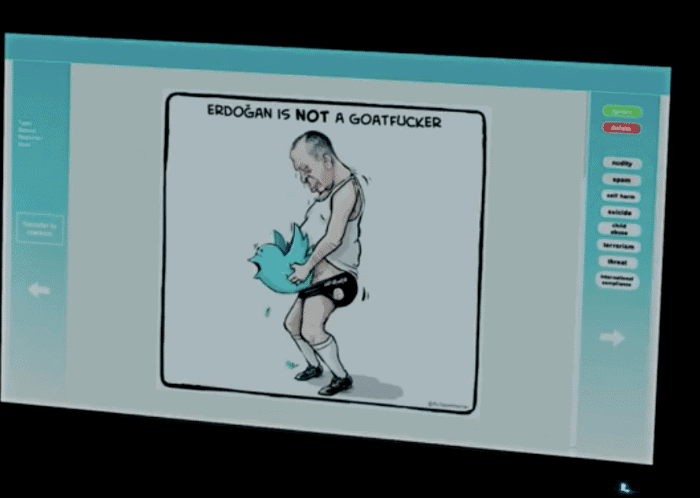Given the political and societal concerns that consumed the populace in 2018, you could have imagined that the best documentaries of the year were equally preoccupied with our great anxieties. You will certainly discover several films below that speak directly to a demand for change and uplift, if not full-on revolution. However, we were also struck by the number of personal and artistic narratives that championed passion and challenged the usual mechanics of the medium. There are a few talking heads, but more often than not, the best documentaries of the year were intoxicatingly cinematic.
Streaming platforms offer a new level of accessibility for these filmmakers, and it is a true joy to inform you that most of these films are readily available. Netflix, Hulu, Amazon, HBO, Showtime, etc. You may have to do a little investigative digging, but the days of docs lost to the void of the festival circuit are dwindling.
Keep reading for the definitive ranking of the 25 Best Documentaries of 2018 as voted on by Valerie Ettenhofter, Brad Gullickson, J.R. Kinnard, and Jordan M. Smith.
25. On Her Shoulders

Activist Nadia Murad’s story is too much for most people to bear. Everywhere she goes, the young Yazidi genocide survivor, who was captured and sexually exploited by ISIS at the age of 19, is confronted by weeping strangers, questioning onlookers, and tight-smiled politicians. They’re upset to hear about her unimaginable trauma; meanwhile, she’s reliving it again and again in front of the U.N. and in interviews across the world. This brave choice is the subject of Alexandria Bombach’s documentary, a fly-on-the-wall film that’s most revealing when it zooms in on the uncomfortable intersection between fame and tragedy. Murad often seems tired, upset, or uneasy, but she puts herself up, again and again, to speak with sureness and calm about the horrors she and her community faced, in hopes that someone in power will listen. In lesser hands, Murad’s story could feel like a shout in the void, but Bombach captures the triumphs of her mission along with the pain. – Val Ettenhofer
24. Crime + Punishment

Among the investigative documentary exposés released theatrically this year, Stephen Maing’s stands as one of the most domestically distressing and cinematically audacious. Chronicling the story of the N.Y.P.D. 12 and their courageous decision to go public with accusations against their employers of forcing police officers to meet monthly quotas for arrests and summonses, Maing finds himself wrapped up in the investigation, documenting abuses and retribution against his big-hearted collaborators in blue first hand, making for an extremely tense, deeply disturbing watch. Cinema of accountability at its finest. – Jordan M. Smith
23. RBG

“Be a lady and be independent.” Those words, spoken by her mother, shaped the personal philosophy of Supreme Court Justice and liberal superhero Ruth Bader Ginsburg. Co-directors Julie Cohen and Betsy West are completely onboard with Ginsburg’s newfound rock star status, painting the inexhaustible octogenarian as our last hope against tyranny. Luckily, they aren’t afraid to also explore the drier side of Ginsburg’s landmark legal battles for gender equality as a lawyer in the 1970s, including her six appearances before the Supreme Court (she won five of those cases). Ginsberg, who features prominently in the film, charms with a disarming blend of confidence and humility. RBG is a breezy blend of legalese, hero worship, and a firsthand account of a woman who helped re-write the history books. – J.R. Kinnard
22. John McEnroe: In the Realm of Perfection

Julien Faraut’s mesmerizing portrait of John McEnroe in the throes of his run leading up to 1984 French Open between John McEnroe and Ivan Lendl begins with a canny and paradoxical epigraph from none other than Jean-Luc Godard: “Film lies, sport doesn’t.” The quote sets the stage for a film wholly composed of grainy, stunning 16mm footage of McEnroe that was shot with the intention of forensic studies of tennis technique, yet was unearthed in cinema archives just recently by Faraut for the purpose of proving that sport itself can be fundamentally cinematic and ripe with psychological drama when documented in a manner outside of the traditional systems designed for live or television viewing. Lined with snippets from famed French film critic Serge Daney’s writing on tennis and constructed by a filmmaker whose made his living over the last few years working at a cinematique, this is ecstatic sports filmmaking for cinephiles. – JS
21. The Cleaners

A harrowing and high-impact investigative doc, The Cleaners looks into the systems big tech companies like Google and Facebook employ to censor inappropriate or illegal content. Surprisingly, they don’t rely solely on algorithms but employ a large force of people–usually young, poor people from countries like the Philippines, with the expectation of a high turnover rate–to sort through thousands of explicit and incendiary images per day and double-check the filtering systems. These workers are trained for only a few days before being given a job so important it can change the outcomes of elections, wars, and political movements, and leave them traumatized to boot. Directors Hans Block and Moritz Riesewieck use unprecedented access, clever cross-editing between the censors and censored, and the sheer horrifying power of their topic to deliver a searing evaluation of a shady system. – VE
The post The Best Documentaries of 2018 appeared first on Film School Rejects.

0 comments:
Post a Comment